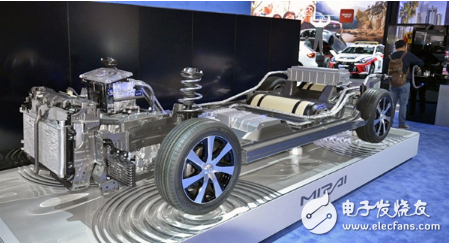A comparison between pure electric vehicles and hydrogen fuel cell vehicles in a recent study by US and German researchers found that pure electric vehicles have advantages over hydrogen fuel cell vehicles in terms of reducing emissions, making them more environmentally friendly and economical. .
Stanford University announced on the 14th that in order to study which type of electric vehicle has more environmental and economic advantages, the school cooperated with researchers from the Munich University of Technology in Germany to select Los Altossi in Santa Clara County, Northern California, USA. The town of Salis is the subject of the study, speculating on the popularity of new energy vehicles, related infrastructure construction and solar energy use in the town over the next 10 to 20 years, and using a computer model developed by Thomas Hammacher, a professor at the Technical University of Munich. simulation.

This sunny town currently has about 8,000 residents, and solar power is very prominent in Santa Clara County, and car ownership is also the highest in California. The researchers speculate that in the next 10 to 20 years, pure electric and hydrogen fuel cell vehicles will be used more widely in the local area. By 2035, electric vehicles account for about 38% of the total local transportation. The researchers entered the computer model with the above speculation along with the total amount of energy needed for the day in Los Altos Hills and the cost of building the infrastructure related to electric vehicles. Simulation analysis found that pure electric vehicles perform better than hydrogen fuel cell vehicles in reducing carbon emissions. For hydrogen fuel cell vehicles to be competitive in terms of overall cost, vehicle pricing must be much lower than pure electric vehicles. However, the reality is that hydrogen fuel cell vehicles are much more expensive than pure electric vehicles for the foreseeable future.
Matthew Pello, who participated in the study, said the study provides objective, data-driven analysis to help decision makers in California and elsewhere understand which technology pathways are better for climate change.
Epoxy Resin Seal Sensor
Epoxy resin seal type NTC temperature sensor with the properties of good stability, fast response, temperature resistance, convenient to use, has been already applied to air conditioner, automotive, electrical appliance and induction cooker. Temperature range is from -30°C to 105°C.
Epoxy Resin Seal Sensor,Stability Sensor,Greenhouse Sensors,Bus Sensor
Feyvan Electronics Technology Co., Ltd. , https://www.fv-cable-assembly.com
